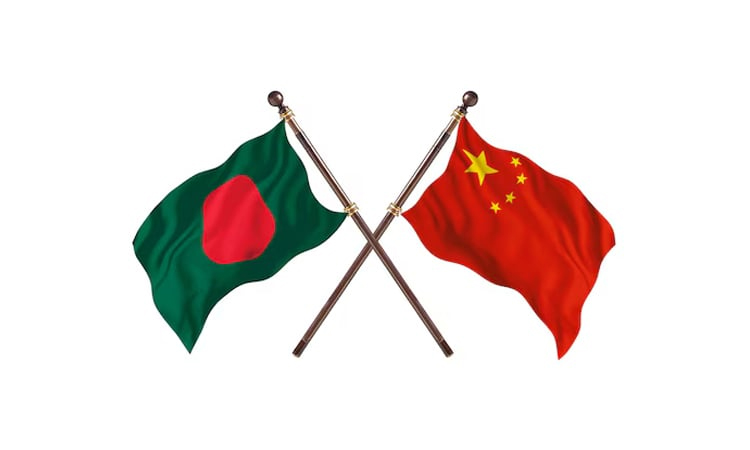News Flash
News Flash

DHAKA, Nov 22, 2025 (BSS) - The Chinese business community in Bangladesh say cooperation under the Belt and Road Initiative (BRI) is poised for transition as the coming decade of Bangladesh-China BRI cooperation is likely to centre on diversifying industry, improving manufacturing competitiveness and broadening Bangladesh's exports to China.
According to the Chinese Enterprises Association in Bangladesh (CEAB) President Han Kun, the next stage of BRI engagement will centre on sustainability, shared financing and broader participation from private actors - moving beyond the perception that BRI is solely a China-funded framework.
In an exclusive interview with BSS, Han said misconceptions about BRI remains particularly the assumption that China alone finances all major projects. "That is a misunderstanding," he said. "BRI is a bilateral cooperation framework, not a one-way initiative where China alone spends money. It is meant to be mutually beneficial, involving both governments, private investors, and businesses from all sides,"
He said that more than 140 countries have already joined the initiative, making it unrealistic for any single nation to shoulder the full financial burden.
"China's economy is strong, but even then it can't fund all projects in all participating countries. For sustainability, investment has to be shared, benefits have to be shared, and project selection has to be pragmatic," he said.
Bangladesh formally joined the Belt and Road Initiative in 2016, opening a new chapter in bilateral cooperation. Since then, major infrastructure projects - including bridges, power plants, tunnel and road networks - have been undertaken with various forms of Chinese financing, ranging from concessional loans to commercial and private investment.
Han said the next chapter of this engagement should move beyond hard infrastructure. "Cooperation will not only be in construction and contracting," he said. "It will include industry, trade, technology, culture and business models. Cultural industries-movies, TV series, media exchanges-already play large roles in China's economy. These can foster deeper economic ties as well."
With new investors continuing to explore opportunities in Bangladesh, he said a predictable environment and coordinated policy support will be essential.
"Newcomers from China are already showing interest in Bangladesh. If the environment remains predictable, and if both sides collaborate effectively, investment will grow. CEAB's role is to bridge Bangladeshi and Chinese business communities and encourage more diversified Chinese participation."
Looking ahead, Han predicted that the coming decade of Bangladesh-China BRI cooperation will centre on diversifying industry, improving manufacturing competitiveness, and broadening Bangladesh's exports to China.
Currently, Bangladesh's export basket remains limited, though recent openings - such as the entry of mangoes into the Chinese market - offer new opportunities. "Next year, jackfruit and other products may be approved. But we need to innovate and identify more export-worthy items. That is crucial," he said.
Han added that semi-finished goods, value-added products, and more technologically advanced manufacturing are likely to grow through joint ventures and industry upgrading.
Infrastructure cooperation, too, will gradually shift toward higher efficiency and more advanced technology, including expressways, metro rail systems, and water-resource-based transport solutions.
Despite existing challenges, the CEAB president expressed strong confidence in the direction of BRI cooperation in Bangladesh. He said the platform has already delivered extensive economic benefits and will continue to evolve in line with both countries' development priorities.
"BRI cooperation between Bangladesh and China will continue to expand and become more optimized. It will support both economic and social development," he said.
Han concluded that Bangladesh must view the next stage of the partnership with a strategic outlook. "BRI is not only about China helping others-it is about building shared, sustainable development, ensuring both countries benefit."
While expressing optimism, Han also identified challenges in the implementation of government-to-government projects. He said many large-scale projects take significantly longer than expected because both countries must complete full cycles of approval at every stage.
He said a feasibility study is approved in Bangladesh, then it goes to China for another full approval, and when they finish, it comes back again to Bangladesh. Then the cycle repeats with the DPP and cabinet processes. This is why G2G takes double time, he added.
Han suggested that time-bound work handling or responses to service application could be enforced to improve efficiency.
Agencies must respond within specified period of time; otherwise, accountability mechanisms are triggered. If such systems could be adopted or strengthened in Bangladesh, efficiency would increase by 100 percent."